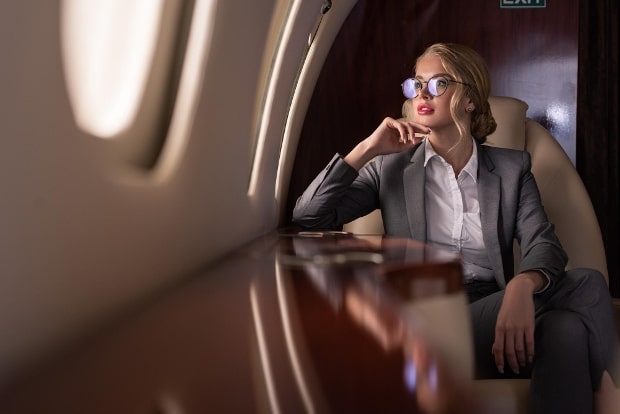In the competitive world of air travel, customer experience is a critical differentiator. Airlines must go beyond the basics of safety and punctuality to create memorable journeys that inspire loyalty. This article delves into the most effective strategies airlines are employing to enhance customer experience, from personalized services to cutting-edge technology.
Understanding the Modern Traveler
Today’s travelers have higher expectations than ever before. They demand convenience, personalization, and seamless experiences at every touchpoint. Airlines need to understand these evolving needs to stay relevant and competitive.
The Role of Personalization
Personalization is at the heart of modern customer experience strategies. Airlines are leveraging data analytics to offer tailored services. This includes personalized travel recommendations, seat preferences, in-flight entertainment options, and even meal choices. By understanding individual preferences and anticipating needs, airlines can make each passenger feel valued and unique.
The Power of Technology
Technology is a powerful enabler of superior customer experiences. From mobile apps to AI-powered chatbots, airlines are investing heavily in tech innovations to streamline processes and enhance convenience.
Mobile Apps and Self-Service
Mobile apps are now a crucial component of the travel experience. They offer functionalities like mobile check-in, real-time flight updates, digital boarding passes, and even the ability to change flights. Self-service kiosks at airports complement these apps, allowing passengers to manage their travel plans independently, reducing wait times and improving satisfaction.
Artificial Intelligence and Chatbots
AI-powered chatbots and virtual assistants are transforming customer service in the airline industry. These technologies provide 24/7 support, answer queries, and assist with booking modifications, ensuring passengers receive immediate assistance. Furthermore, AI can analyze customer data to provide personalized recommendations, enhancing the overall travel experience.
Enhancing In-Flight Experience
The in-flight experience is a critical aspect of customer satisfaction. Airlines are continuously innovating to provide passengers with comfort, entertainment, and connectivity.
Comfort and Amenities
Airlines are upgrading their fleets with more comfortable seating, extra legroom options, and improved cabin environments. Providing amenities like blankets, pillows, and quality in-flight meals can significantly enhance the passenger experience. Some airlines are also introducing premium economy classes to offer a middle ground between economy and business class.
In-Flight Entertainment and Connectivity
Modern travelers expect high-quality in-flight entertainment and connectivity. Airlines are investing in state-of-the-art entertainment systems, offering a wide range of movies, TV shows, music, and games. Additionally, in-flight Wi-Fi is becoming a standard feature, allowing passengers to stay connected, work, or browse the internet during their flight.
Streamlined Airport Experience
A smooth airport experience is essential for a positive overall journey. From check-in to baggage claim, every touchpoint matters.
Efficient Check-In and Security Processes
Airlines are working closely with airports to streamline check-in and security processes. Online check-in, self-service kiosks, and automated baggage drops are reducing wait times and improving efficiency. Additionally, partnerships with security agencies are helping to expedite security screenings, making the process less stressful for passengers.
Lounge Access and Premium Services
For frequent flyers and premium passengers, access to airport lounges and other exclusive services is a significant perk. Lounges offer a tranquil environment with amenities like comfortable seating, complimentary food and beverages, Wi-Fi, and shower facilities. Some airlines also provide fast-track security and boarding services, further enhancing the travel experience for their most valued customers.
Customer Feedback and Continuous Improvement
Listening to customer feedback and continuously improving services is vital for maintaining high standards of customer experience.
Gathering and Analyzing Feedback
Airlines use various channels to gather customer feedback, including surveys, social media, and direct interactions. Analyzing this feedback helps identify areas of improvement and measure the effectiveness of implemented strategies. Advanced data analytics tools can uncover trends and insights, guiding future initiatives.
Implementing Changes
Successful airlines are agile in implementing changes based on customer feedback. Whether it’s updating in-flight menus, enhancing mobile app features, or improving staff training programs, being responsive to passenger needs builds trust and loyalty.
Human Touch and Exceptional Service
Despite the advancements in technology, the human touch remains irreplaceable. Airlines are focusing on training their staff to provide exceptional service, from check-in agents to flight attendants.
Staff Training and Empowerment
Well-trained, courteous, and empowered staff can make a significant difference in the passenger experience. Airlines are investing in comprehensive training programs that emphasize customer service skills, cultural sensitivity, and problem-solving abilities. Empowering staff to make on-the-spot decisions to assist passengers can turn potential issues into positive experiences.
Recognizing and Rewarding Loyalty
Loyalty programs are a cornerstone of customer retention strategies. Airlines offer rewards and incentives to frequent flyers, including mileage points, upgrades, and exclusive offers. Recognizing and rewarding loyalty not only fosters repeat business but also encourages passengers to choose the same airline for future travels.
Sustainability and Ethical Practices
Modern travelers are increasingly concerned about environmental and ethical issues. Airlines that prioritize sustainability and ethical practices can enhance their brand image and attract conscientious customers.
Green Initiatives
Airlines are adopting green initiatives to reduce their environmental footprint. This includes investing in more fuel-efficient aircraft, optimizing flight paths to save fuel, and implementing recycling programs. Some airlines are also offering passengers the option to offset their carbon emissions, contributing to environmental sustainability.
Ethical Treatment of Staff and Communities
Ethical treatment of staff and communities is another critical aspect of customer perception. Airlines that ensure fair labor practices, support local communities, and engage in charitable activities are viewed more favorably by passengers. Transparent communication about these efforts enhances credibility and passenger trust.
The Future of Airline Customer Experience
The future of airline customer experience is bright, with continuous advancements in technology and an increasing focus on personalization and sustainability. Emerging technologies like virtual reality, biometric identification, and blockchain hold the promise of further transforming the travel experience.
Virtual Reality and Augmented Reality
Virtual reality (VR) and augmented reality (AR) are set to revolutionize in-flight entertainment and passenger engagement. VR can offer immersive entertainment experiences, while AR can provide interactive information about flight routes, destinations, and onboard services.
Biometric Identification
Biometric identification is streamlining airport processes, making travel more convenient and secure. Facial recognition and fingerprint scanning are reducing the need for physical documents and expediting check-in, security, and boarding processes.
Blockchain Technology
Blockchain technology offers potential benefits in areas like ticketing, baggage tracking, and loyalty programs. It can provide a secure, transparent, and efficient way to manage transactions and data, enhancing trust and reducing fraud.
Conclusion
The airline industry is continually evolving to meet the demands of modern travelers. By embracing personalization, leveraging technology, enhancing in-flight and airport experiences, and committing to sustainability and ethical practices, airlines can deliver exceptional customer experiences. As the industry moves forward, those that prioritize and innovate in these areas will lead the way in shaping the future of air travel.



